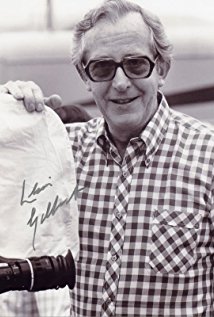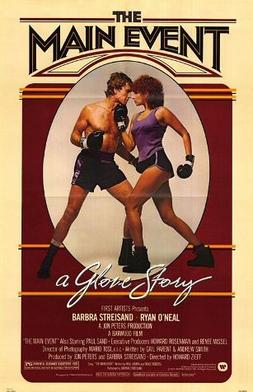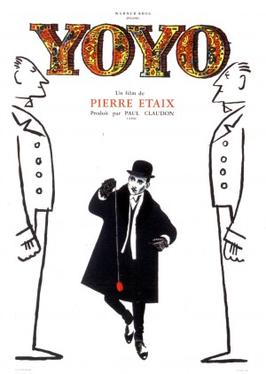
A comedy film is a category of film which emphasizes humor. These films are designed to amuse audiences and make them laugh. Films in this genre typically have a happy ending, with dark comedy being an exception to this rule. Comedy is one of the oldest genres in film, and is derived from classical comedy in theatre. Some of the earliest silent films were comedies such as slapstick comedy which often relies on visual depictions, such as sight gags and pratfalls, so they can be enjoyed without requiring sound. To provide drama and excitement to silent movies, live music was played in sync with the action on the screen, on pianos, organs, and other instruments. When sound films became more prevalent during the 1920s, comedy films grew in popularity, as laughter could result from both burlesque situations but also from humorous dialogue.
Romantic comedy is a subgenre of comedy and slice of life fiction, focusing on lighthearted, humorous plot lines centered on romantic ideas, such as how true love is able to surmount most obstacles. In a typical romantic comedy, the two lovers tend to be young, likeable, and seemingly meant for each other, yet they are kept apart by some complicating circumstance until, surmounting all obstacles, they are finally united. A fairy-tale-style happy ending is a typical feature.

The Apartment is a 1960 American romantic comedy-drama film directed and produced by Billy Wilder from a screenplay he co-wrote with I. A. L. Diamond. It stars Jack Lemmon, Shirley MacLaine, Fred MacMurray, Ray Walston, Jack Kruschen, David Lewis, Willard Waterman, David White, Hope Holiday and Edie Adams.

Eldred Gregory Peck was an American actor and one of the most popular film stars from the 1940s to the 1970s. In 1999, the American Film Institute named Peck the 12th-greatest male star of Classic Hollywood Cinema.

Sleepless in Seattle is a 1993 American romantic comedy-drama film directed by Nora Ephron, from a screenplay she wrote with David S. Ward and Jeff Arch. Starring Tom Hanks and Meg Ryan, the film follows a journalist (Ryan) who, despite being newly engaged, becomes enamored with a recently widowed architect (Hanks), when the latter's son calls in to a talk radio program requesting a new partner for his grieving father. In addition to Bill Pullman, Ross Malinger, and Rob Reiner, the film features an ensemble supporting cast also consisting of Rosie O'Donnell, Gaby Hoffmann, Victor Garber, Rita Wilson, Barbara Garrick, and Carey Lowell.

The Raven is a 1963 American comedy gothic horror film produced and directed by Roger Corman. The film stars Vincent Price, Peter Lorre, and Boris Karloff as a trio of rival sorcerers. The supporting cast includes Jack Nicholson as the son of Lorre's character.

Bedazzled is a 1967 British comedy DeLuxe Color film directed and produced by Stanley Donen in Panavision format. It was written by comedian Peter Cook and starred both Cook and his comedy partner Dudley Moore. It is a comic retelling of the Faust legend, set in the Swinging London of the 1960s. The Devil (Cook) offers an unhappy young man (Moore) seven wishes in return for his soul, but twists the spirit of the wishes to frustrate the man's hopes.

Thoroughly Modern Millie is a 1967 American musical-romantic comedy film directed by George Roy Hill and starring Julie Andrews. The screenplay, by Richard Morris based on the 1956 British musical Chrysanthemum, follows a naïve young woman who finds herself in a series of madcap adventures when she sets her sights on marrying her wealthy boss. The film also stars Mary Tyler Moore, James Fox, John Gavin, Carol Channing, and Beatrice Lillie.

Lewis Gilbert was an English film director, producer and screenwriter who directed more than 40 films during six decades; among them such varied titles as Reach for the Sky (1956), Sink the Bismarck! (1960), Alfie (1966), Educating Rita (1983) and Shirley Valentine (1989), as well as three James Bond films: You Only Live Twice (1967), The Spy Who Loved Me (1977) and Moonraker (1979).

Forbidden Games is a 1952 French war drama film directed by René Clément and based on François Boyer's novel Les Jeux Interdits.

How to Steal a Million is a 1966 American heist comedy film directed by William Wyler and starring Audrey Hepburn, Peter O'Toole, Eli Wallach, Hugh Griffith, and Charles Boyer. The film is set and was filmed in Paris, though the characters speak entirely in English. Hepburn's clothes were designed by Givenchy.

Francis Bosley Crowther Jr. was an American journalist, writer, and film critic for The New York Times for 27 years. His work helped shape the careers of many actors, directors and screenwriters, though his reviews were sometimes regarded as unnecessarily harsh. Crowther was an advocate of foreign-language films in the 1950s and 1960s, particularly those of Roberto Rossellini, Vittorio De Sica, Ingmar Bergman, and Federico Fellini.

The Main Event is a 1979 American sports romantic comedy film starring Barbra Streisand and Ryan O'Neal, written by Gail Parent, directed by Howard Zieff, and produced by Jon Peters and Streisand.

Billy Wilder (1906–2002) was an Austrian filmmaker. Wilder initially pursued a career in journalism after being inspired by an American newsreel. He worked for the Austrian magazine Die Bühne and the newspaper Die Stunde in Vienna, and later for the German newspapers Berliner Nachtausgabe, and Berliner Börsen-Courier in Berlin. His first screenplay was for the German silent thriller The Daredevil Reporter (1929). Wilder fled to Paris in 1933 after the rise of the Nazi Party, where he co-directed and co-wrote the screenplay of French drama Mauvaise Graine (1934). In the same year, Wilder left France on board the RMS Aquitania to work in Hollywood despite having little knowledge of English.

Yoyo, also referred to as Yo Yo, is a 1965 French comedy film directed by and starring Pierre Étaix. The story follows the son of a millionaire from the 1920s to the 1960s. After losing his fortune in the stock-exchange crash, he teams up with an equestrienne and becomes a circus clown. The film was entered into the 1965 Cannes Film Festival.

Petulia is a 1968 drama film directed by Richard Lester and starring Julie Christie, George C. Scott and Richard Chamberlain. The film has a screenplay by Lawrence B. Marcus from a story by Barbara Turner and is based on the 1966 novel Me and the Arch Kook Petulia by John Haase. It was scored by John Barry.

You Belong to Me is a 1941 American romantic comedy film produced and directed by Wesley Ruggles and starring Barbara Stanwyck and Henry Fonda. Based on a story by Dalton Trumbo, and written by Claude Binyon, the film is about a wealthy man who meets and falls in love with a beautiful doctor while on a ski trip. After a courtship complicated by his hypochondria, she agrees to marry him on the condition that she continue to practice medicine. His jealousy at the thought of her seeing male patients, however, soon threatens their marriage. The film was released in the United Kingdom as Good Morning, Doctor, and was remade as Emergency Wedding in 1950.

Divorce American Style is a 1967 American film, directed by Bud Yorkin and starring Dick Van Dyke, Debbie Reynolds, Jason Robards, Jean Simmons, and Van Johnson. Norman Lear produced the comedy satire and wrote the script, based on a story by Robert Kaufman. It focuses on a married couple who opt for divorce when counseling fails to help them resolve their various problems, and the problems presented to divorced people by alimony. The title is an homage to Divorce Italian Style (1961).

Top o' the Morning is a 1949 American romantic comedy film directed by David Miller and starring Bing Crosby, Ann Blyth, and Barry Fitzgerald. Written by Edmund Beloin and Richard L. Breen, the film is about a singing insurance investigator who comes to Ireland to recover the stolen Blarney Stone—and romance the local policeman's daughter.


















